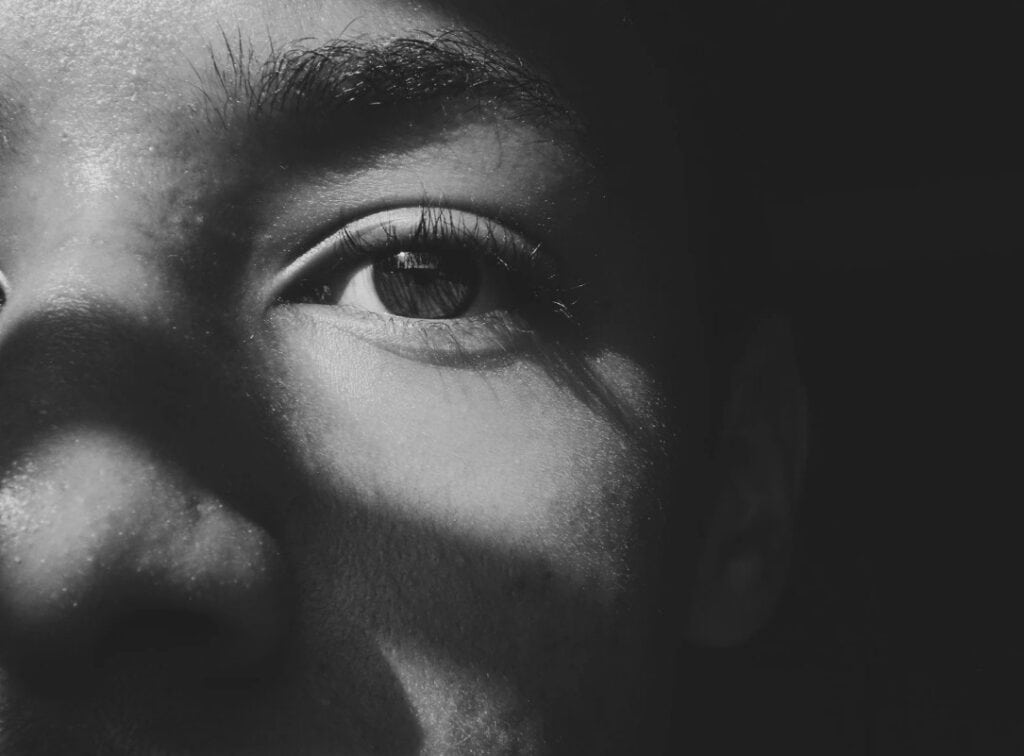When it comes to understanding substance abuse, especially heroin, it’s essential to recognize both the emotional and physical signs. Among the various physical indicators, one of the most noticeable is the change in the appearance of the eyes, commonly referred to as “heroin eyes.”
Table of Contents
Heroin eyes manifest as constricted, pinpoint pupils that do not respond normally to changes in light. This condition is a direct consequence of the drug’s impact on the nervous system.
Recognizing the signs early can be the first step towards seeking help and recovery, which is particularly important if someone you know is struggling with addiction.

Heroin Eyes Explained
Heroin eyes specifically refer to distinct changes in the eyes resulting from heroin use. These changes are characterized by several noticeable symptoms:
Constricted Pupils
One of the primary indicators of heroin use is Constricted Pupils, also known as pinpoint pupils. This condition results in the pupils being abnormally small and failing to dilate properly in low-light conditions, contrary to how normal pupils adjust to changes in lighting.
Redness and Bloodshot Eyes
While not exclusive to heroin use, Redness and Bloodshot Eyes are common symptoms that can also stem from sleep deprivation or general physical stress related to drug use. These symptoms can indicate the body’s struggle to cope with the effects of the substance.
Watery or Glassy Eyes
Another significant sign is Watery or Glassy Eyes, which often accompany a generally lethargic appearance. This symptom is frequently observed in individuals under the influence of heroin and reflects the drug’s sedative effects.

Recognizing Other Physical Signs of Heroin Use
In addition to heroin eyes, there are other physical symptoms that might suggest heroin use. These can include:
- Changes in Appearance: Rapid weight loss and neglect of personal hygiene may be apparent.
- Track Marks: These are visible signs of intravenous drug use, often found on the arms.
- Unusual Sleep Patterns: Heroin can cause individuals to nod off suddenly, even in the middle of a conversation.
- Slowed Breathing: This can be particularly dangerous and is a direct effect of opioid use, which can suppress the respiratory system.
The Emotional and Behavioral Signs of Heroin Use
While physical signs are more noticeable, emotional and behavioral changes are equally significant. Understanding these can help you approach your loved ones for support:
- Mood Swings: Sudden and unexplained changes in mood, including bursts of euphoria followed by extreme lows.
- Withdrawal from Social Activities: A lack of interest in hobbies or activities that were once enjoyed can be a red flag.
- Secretive Behavior: Frequent, unexplained absences and a general sense of secrecy might indicate a problem.
- Financial Issues: An unexplained lack of funds or frequent borrowing can be associated with the costs of sustaining a drug habit.
How to Support Recovery: Empathy and Understanding
Supporting your loved ones through recovery from heroin addiction requires patience, understanding, and empathy. It’s essential to recognize the challenges they face and provide a supportive environment that encourages healing. Here are some ways you can support them:
- Encourage Professional Help: Gently suggest the benefits of professional treatment and support groups.
- Be There: Sometimes, simply being there and listening can make a significant difference.
- Educate Yourself: Understanding addiction and its challenges can help you provide better support.
- Avoid Judgment: Keep conversations open and free from judgment to encourage honest dialogue.

Seeking Professional Help
Professional help is essential for managing and overcoming addiction effectively. If you find yourself struggling with addiction, here are several effective types of assistance you can consider:
Detoxification Programs
Detoxification Programs are specifically designed to manage withdrawal symptoms under medical supervision safely. These programs help individuals begin their journey toward recovery by clearing the body of substances in a controlled environment.
Rehabilitation Programs
Rehabilitation Programs offer structured treatment environments that provide the necessary support and resources for individuals to recover. These programs focus on healing both the body and mind, building the skills needed for a drug-free life.
Therapy and Counseling
Therapy plays a vital role in addressing the psychological aspects of addiction. Counseling helps you understand and overcome the underlying psychological issues of addiction to aid in long-term recovery and relapse prevention.
Wrapping Up
Recognizing the signs, particularly heroin eyes, is a step toward addressing and managing heroin addiction. If you or someone you know is struggling, remember that asking for help reflects courage and strength, not weakness.
So, hold onto the hope that recovery is always within reach, and know that you’ll always find support at every step of your journey.



